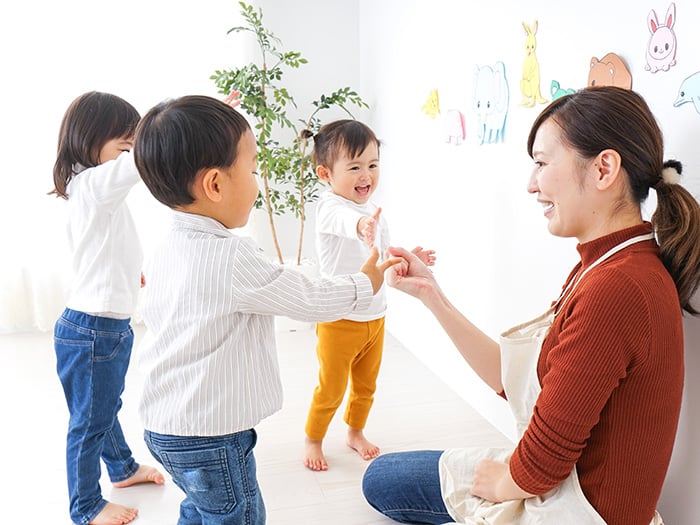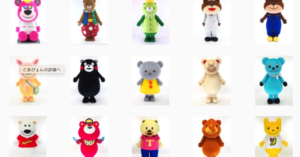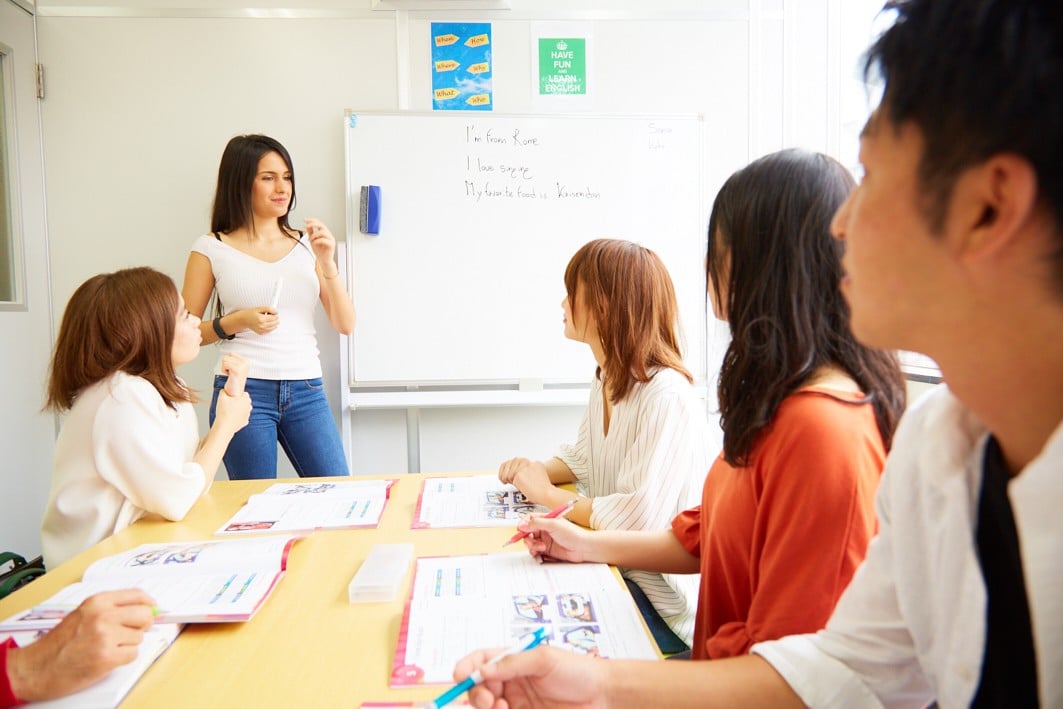
Teaching babies can be stressful, rewarding, terrifying and exciting all at the same time. It’s also something that you are likely to encounter if you come to Japan and teach English.
Unless you come to Japan as a student, if you are planning to stay more than three months then it is likely that you’ll need a job, not only for financial reasons but also to gain a work visa. As a foreigner, and if you are like me you are arriving in Japan with only the ability to say ‘hello’ and ‘thank you’ in Japanese, then you are likely to find yourself teaching English. While there are many different companies and types of teaching English jobs in Japan, one of the easiest ones to find is working in an Eikaiwa.
What is an Eikaiwa?
Eikaiwa literally means ‘English conversation’ in Japanese, so these are marketed as English conversation schools. Most Eikaiwa teach all ages from babies up to adults. There are many big companies that own chains of Eikaiwa schools and there are also smaller family run schools or schools owned by experienced foreign English teachers themselves. Wherever you find yourself, most Eikaiwa will follow a similar structure and have similar materials.
There is one thing that they all have in common though, you must enjoy working with children. If you know that working with young children is not for you, then you most likely want to find an English conversation school that teaches adults only. Working with children is not for everyone. It’s tiring and challenging, especially when they don’t speak the same language as you and you get frustrated that your instructions are not getting heard. However, at the same time, working with children can be fun and rewarding, so I would encourage you to try it and decide what works best for you. If you want more information on which type of teaching job might be right for you, this article on the blog can help.
My first experience with babies
Most people believe that they can work with children, but many people often overlook that this also includes babies. If an Eikaiwa offers baby lessons then this will be aimed at children aged between 1 and 3 year’s old. It will also include at least one parent in the class and, if it is a decent Eikaiwa, baby lessons should shorter compared to their regular kindergarten lessons. I bet you’re thinking: ‘how am I meant to teach a baby English when they don’t even speak Japanese yet’, and while it is true that the baby might not have started speaking (especially if they are on the younger side of 1-3 years) don’t let this put you off. Baby lessons are less about getting them talking, and more about immersing them in the language from a young age.
The first thought of teaching babies can be terrifying, especially if you have no previous experience with children. The thought of parents being in the room makes it even more daunting for a lot of new teachers. For myself, I had previous experience working with children in my home country of England, but only at a childminder level – not as a teacher. This meant that although I was used to being around young children, the thought of having to sing, dance and try and hold the attention of a 1 year old for 30/40 minutes still made me sweat.
My first couple of experiences teaching babies didn’t get off to the best start. You learn quite quickly that babies cry, and also not to take it personally if they cry around you. During my first lesson at my newest job in Japan, the baby boy took one look at me and burst into tears, however the mother still wanted to persevere with the lesson so I spent 40 minutes back and forth from the office to the classroom, hiding until he calmed down, only for him to cry again every time he saw my face. Another incident where a baby girl got a little over excited at one of the songs and fell down while trying to dance, luckily she wasn’t hurt but I still had to continue the lesson while dealing with her crying, and me feeling partly responsible for causing it.
It’s not just crying that I have dealt with, sleeping is another favourite pastime for babies to do. I’ve had multiple babies fall asleep in my classes at which point I just presumed that the parent would take them home and reschedule for a make up lesson some other time but instead I had the awkward interaction of the parent wanting me to teach them instead while their child slept but with only baby materials to hand, the lesson felt slightly patronising. It’s not just the babies that fall asleep in class either, I’ve had experiences where the parent has been snoring in the corner while I’m left looking after and trying to entertain their young child.
Don’t panic! – advice for teaching babies
I have to admit that these first few baby teaching experiences didn’t all go to plan, I could never stick to the structure of the lesson I was supposed to give and as more babies cried and fell asleep on me, the task ahead just became too overwhelming. However, after one particularly stressful lesson with the baby that cried the first time he saw me, in which he spent most of it running around the room throwing things, as he left I just heard the faint word ‘balloon’. We had been using a balloon in the lesson and as I gave it to him to take home I heard I again, ‘balloon’. My heart was filled by a warm feeling that I did that, this child had learnt the word ‘balloon’ from me, I started to think that maybe the rewards that you can get from teaching a child so young outweighs the effort that it can take.
Now, teaching babies are actually my favourite classes to teach, yes they can be challenging but I find that they are the classes that can give you the most satisfaction from being an English teacher. I would like to arm you with some advice for teaching babies so that your first baby lessons will be less daunting and much more gratifying.
- Remember that they are babies.
It sounds weird but this is actually something I forgot about. Don’t worry if they cry or sleep, run around the room and get distracted by everything, this is what babies do. The parent in the class should help with crowd control if they are misbehaving but if they are just being babies then roll with it. If they find something that they are interested in, use that to teach them. Every student is different and after a few lessons you will start to learn what works for yours.
- Don’t worry about sticking to the lesson plan.
This follows on from number one. Some Eikaiwa might have a set lesson plan for babies but this is usually just a guide of what songs to sing and what material to teach. How you teach it is up to you, find what interests your particular baby and work from that. Babies have quite a short attention span so you probably want extra materials on hand in case you get through your original plan quicker than expected. Have a look on Pinterest for some material ideas if you want to make your own.
- Get the parents involved
This is the best way to avoid the snoring parent in the corner. Get them repeating the vocabulary, singing the songs, doing the dance moves. The lesson is very much or them as well as the baby. I would also try and encourage them to use what they have learnt in the lesson at home, this will greatly impact the speed of improvement for the baby. This also helps the parent to actually have fun in the class, which will make the job a lot easier and more enjoyable for you too.
- DON’T PANIC!
This is the most important thing to keep in mind. I know it can be terrifying when you first start, due to the unpredictability of what might happen in the lesson but as long as you keep calm and don’t worry if it doesn’t all go according to plan, it will be much easier than you think.
I hope this advice will help you see a baby lesson as less of a nightmare and more of an adorable dream. And again, don’t give up if it is hard at first, relationships with any student can take time to build, but when you get your first tiny high five, you realise how much it was worth it.


















